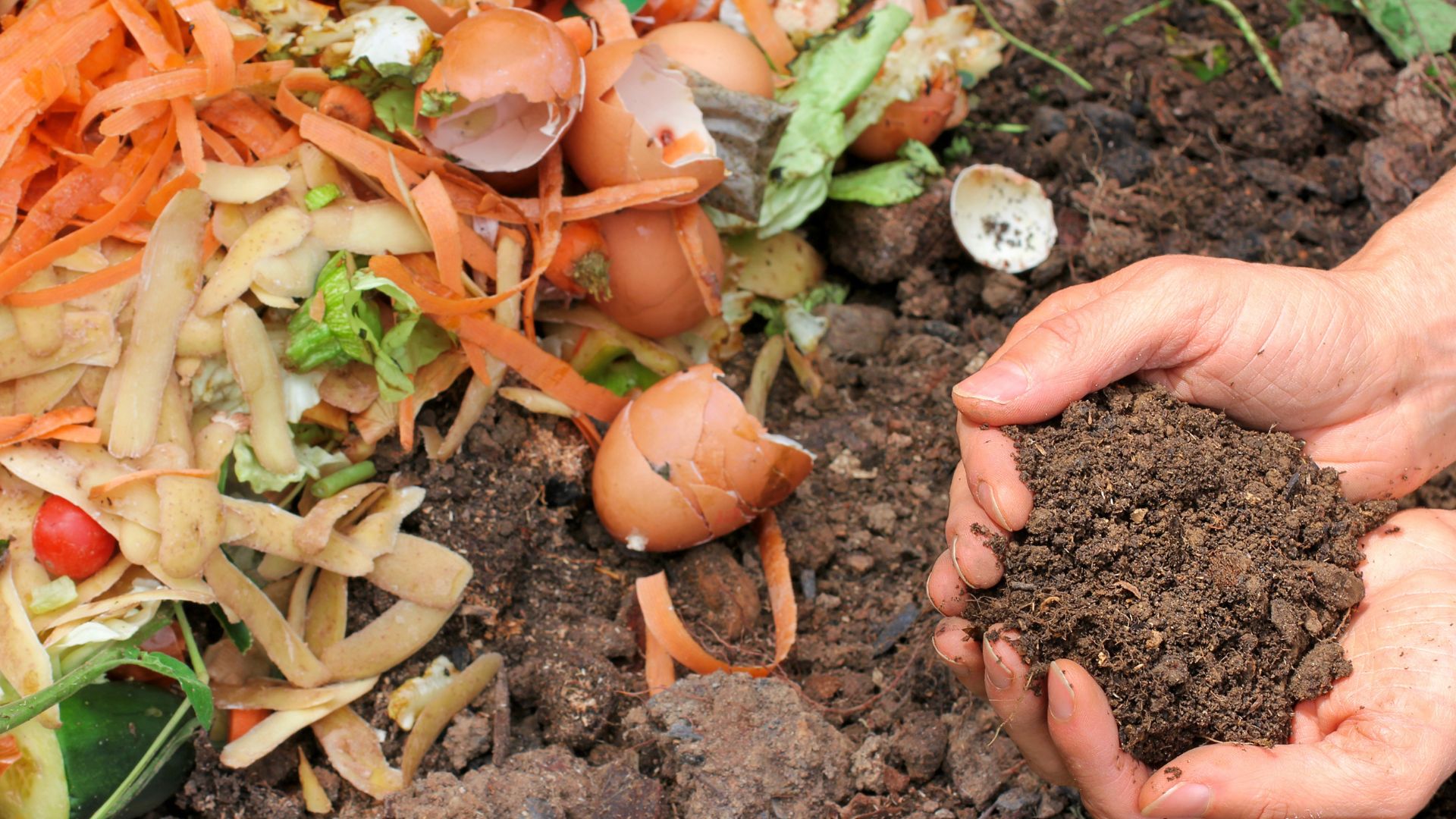Composting 101
go.ncsu.edu/readext?870309
en Español / em Português
El inglés es el idioma de control de esta página. En la medida en que haya algún conflicto entre la traducción al inglés y la traducción, el inglés prevalece.
Al hacer clic en el enlace de traducción se activa un servicio de traducción gratuito para convertir la página al español. Al igual que con cualquier traducción por Internet, la conversión no es sensible al contexto y puede que no traduzca el texto en su significado original. NC State Extension no garantiza la exactitud del texto traducido. Por favor, tenga en cuenta que algunas aplicaciones y/o servicios pueden no funcionar como se espera cuando se traducen.
Português
Inglês é o idioma de controle desta página. Na medida que haja algum conflito entre o texto original em Inglês e a tradução, o Inglês prevalece.
Ao clicar no link de tradução, um serviço gratuito de tradução será ativado para converter a página para o Português. Como em qualquer tradução pela internet, a conversão não é sensivel ao contexto e pode não ocorrer a tradução para o significado orginal. O serviço de Extensão da Carolina do Norte (NC State Extension) não garante a exatidão do texto traduzido. Por favor, observe que algumas funções ou serviços podem não funcionar como esperado após a tradução.
English
English is the controlling language of this page. To the extent there is any conflict between the English text and the translation, English controls.
Clicking on the translation link activates a free translation service to convert the page to Spanish. As with any Internet translation, the conversion is not context-sensitive and may not translate the text to its original meaning. NC State Extension does not guarantee the accuracy of the translated text. Please note that some applications and/or services may not function as expected when translated.
Collapse ▲ Want to learn how to improve your soil quality and reduce waste and air pollution, while saving money, energy, and water? If so, join us at the N.C. Cooperative Extension, Currituck County Center on Thursday, July 21, 2022, from 9:00 to 10:00 a.m. for this free Composting Workshop. Register online for the class using Eventbrite.
Want to learn how to improve your soil quality and reduce waste and air pollution, while saving money, energy, and water? If so, join us at the N.C. Cooperative Extension, Currituck County Center on Thursday, July 21, 2022, from 9:00 to 10:00 a.m. for this free Composting Workshop. Register online for the class using Eventbrite.
Compost is decomposed organic material that can be added to soil to help plants grow. Yard waste and kitchen scraps make up 30 percent of all waste put in landfills, and it could be composted instead! Composting will help save space in landfills and reduce harmful greenhouse and methane gas emissions.
For more information or accommodations for persons with disabilities please contact Chris Blaha at (252) 232-2261 or by email at ctblaha@ncsu.edu no later than 10 business days before class.




